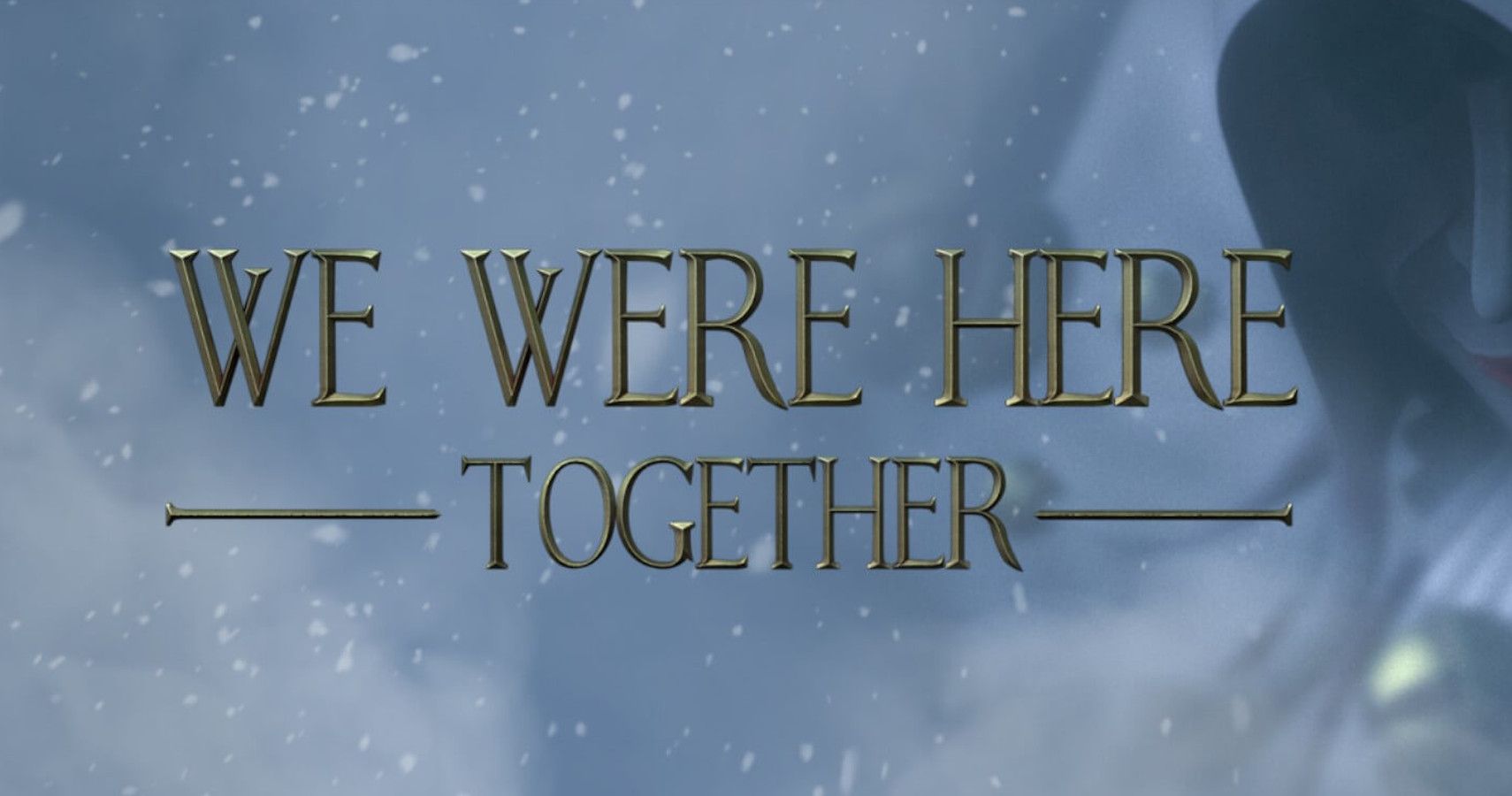

Even more than 30 Flights, Quadrilateral Cowboy is a visual landscape crammed with jokes.
We were here together playtime portable#
Here he presents a near-future imagined as a collage of obsolete and non-existent technologies, a world of hover-bikes and portable phonographs (usually playing Caruso), virtual-reality rigs that run on cassette tapes, and brain scanners that emit the distinctive buzz-whistle of a dial-up modem. His newest, Quadrilateral Cowboy, is as original but less focused. Henry angrily trashes a campsite, say, or makes a panicky run back to his lookout tower, but the real concern is always frustratingly simple: What does the game want from me, here? How do I convince it to let me proceed? The game you are playing and the story it has decided to tell you are perpetually barging into each other, and both suffer-a story of mounting paranoia is expressed as a sequence of tedious chores.īrendon Chung’s 2012 game 30 Flights of Loving took the opposite approach to the interactive short story: it used a blocky, low-res style and a montage of dense, non-linear fragments to tell a disorienting tale of espionage, smuggling, and betrayal. Someone is following Henry, perhaps even framing him for murder, and you find yourself on a conveyor belt of walk-over-that-way-and-press-a-button busywork and ensnared in a mystery that is implausible and still somehow banal.

The way Delilah interprets your silence if you dither too long over the options as just that-silence-was a tiny shock: like unexpected eye contact across a crowded room. In Henry’s tentative radio exchanges with Delilah, whom he’s never actually met, the game has found the perfect narrative excuse for the herky-jerky rhythm inevitable in branching, multiple-choice video-game conversations. There is an unusual emphasis on quiet, patience, and withdrawal. (Not many games convincingly represent a middle-aged man gruntingly heaving himself up a ledge.) The world around you has an exaggerated warmth and clarity: the sun filters through the trees as you pass beneath, smoke curls in the distance, a deer is glimpsed on the path ahead, then disappears. You control Henry from a first-person perspective that goes out of its way to remind you of the particulars of the body you inhabit. Its opening sections are filled with moments of physical and interpersonal observation. The setup seems straight out of an old issue of the Paris Review: it is Wyoming, 1989, and Henry, desperate for a break from caring for a wife with early-onset Alzheimer’s, takes a job as a fire lookout in a national park and falls into an intermittent flirtation with his supervisor, Delilah, via walkie-talkie. A certain type of independent game aspires to the qualities of middlebrow literary fiction, with the focus on delicate, human-scale stories, the subtlety and seriousness, the modest epiphanies. Many mainstream games yearn to be blockbuster movies-the Michael Mann-aping Grand Theft Auto V is the most obvious example. It sometimes seems like no video game wants to be itself.


 0 kommentar(er)
0 kommentar(er)
